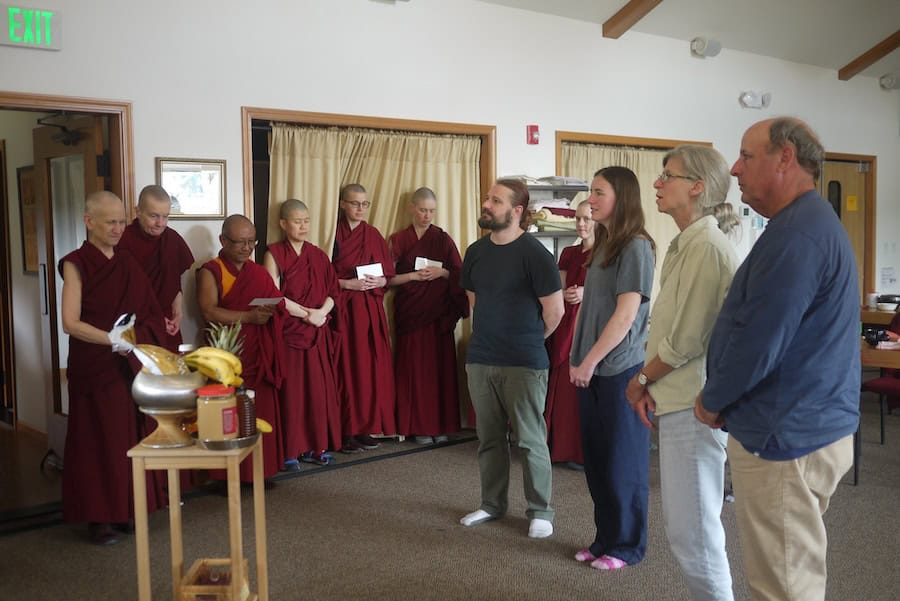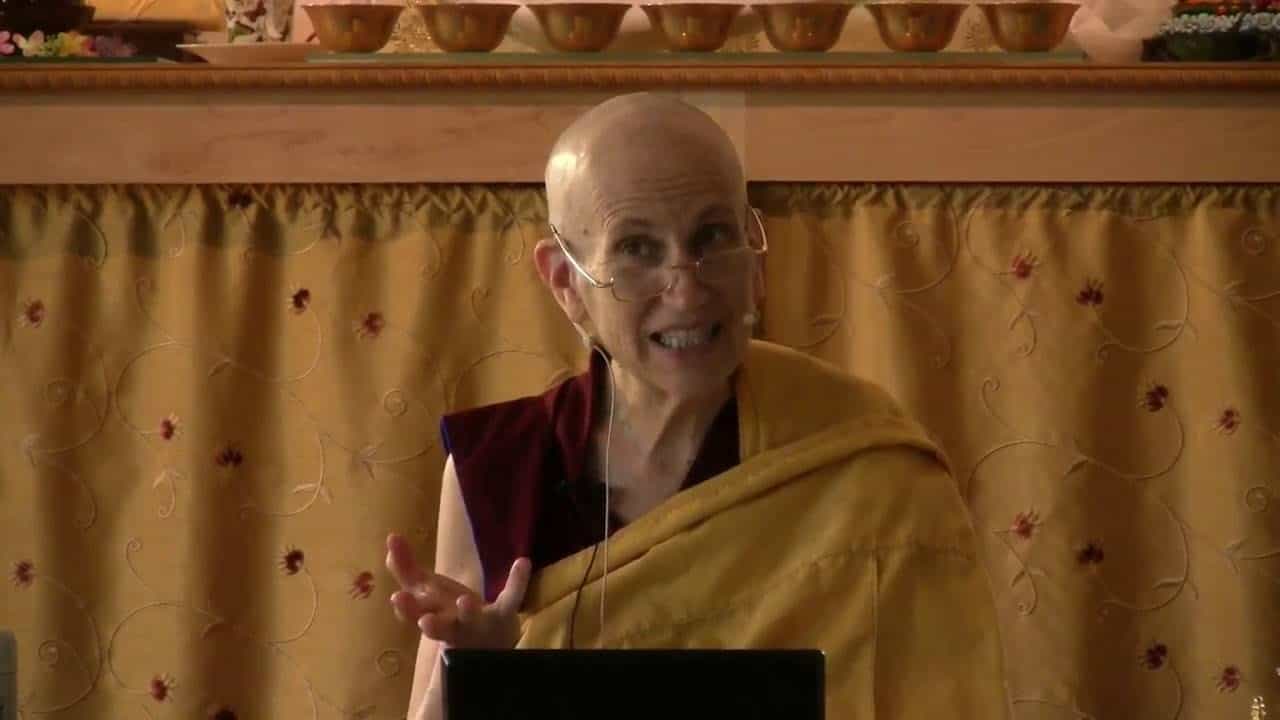The practice of generosity

In accordance with the Buddhist tradition, I feel that Dharma teachings should be given free of charge, thus making them available to anyone who wishes. As a nun, I have chosen not to work for a living and want to be able to serve others without worrying about money.
Dana is a Sanskrit and Pali word that means “generosity” or “giving.” It refers specifically to taking delight in giving—that is, getting in touch with the natural generosity and wish to share inside of us. The mind of generosity is a joyful mind; it does not suffer from regret or a feeling of poverty. Rather, the act of giving itself is pleasurable and seeing others’ using our offering is an extra bonus.
Dana is not a clever way of charging for teachings while looking like we’re not. It is a gift freely and joyfully given. Dana is not given out of obligation or in order to avoid looking cheap. It is an expression of our love and compassion for all beings, an expression of our eagerness to put the Buddha’s teachings into practice. Practically speaking, dana enables Dharma centers and monasteries to exists and enables monastics to survive and thus to continue to give to people seeking the Dharma.
Those of us who are monastics have chosen not to work for a living because we want to be able to serve others without thinking of the teachings and service we give in terms of monetary repayment. We are stepping into the unknown and trusting that others will support us because they see value in our lifestyle of simplicity, ethical discipline, and service. We trust that people will want to support our Dharma study and practice so that we can in turn share the Dharma with them through teaching, leading meditations, and spiritual counseling.
Dana shows that we want the teachers and practitioners who benefit us to have the four requisites of life—food, shelter, clothing, and medicines. We give because we want these people to have what they need—which nowadays includes computers and email!—so that they can continue to share the Dharma with us and all others.
The donations people give should be a gift freely and joyfully given. Dana is not given out of obligation or in order to avoid looking cheap. It is an expression of our love and compassion for all beings and of our eagerness to put the Buddha’s teachings into practice.
An essential part of practice
As the Buddha taught, generosity is an essential part of our practice. The first of the six far-reaching attitudes of the bodhisattvas, generosity frees us from attachment and miserliness. It also directly benefits others. Thus, in the Buddhist tradition, practitioners happily support Buddhist abbeys, temples, centers, teachers, monastics, practitioners, and activities that benefit the society.
Some people may wonder, “I am a lay practitioner. Why should I support monastics when they can work to support themselves?”
As a monastic who has been teaching the Dharma internationally for 30 years, I must say that I never could have done that without others’ dana. If I had had a job, I couldn’t have taken time off to travel to other cities and countries to teach. I couldn’t have put as much time into Dharma practice, so the teachings I gave would not have been very comprehensive. I couldn’t have prepared as much before teaching, so the teachings would have been vague, disorganized, or even incorrect. I would not have had the time to write Dharma books and articles or to reply to the multitudes of email students send requesting advice.
The fact that I’ve been able to serve others all these years is due to the kindness of the people who have given dana over the years. Those who supported me when I was a new nun and not yet qualified to teach enabled me to study with great Tibetan masters and to meditate. Those who offer dana now enable me to stay alive so I can continue studying, practicing, teaching, and writing books. When we understand dependent arising, or “inter-being,” we see that we all depend on each other for help, and we all receive so much from each other.
Having access to Buddhist monasteries, centers, teachers, and teachings depends on our having created the causes. As students, it is important for us personally to create these causes, not to expect others to work or supply the material resources. We must create the karma in order to experience the results we wish.
Whenever we offer our time, energy, and financial help in ways that enable others to receive teachings and practice, we create the cause to receive teachings and to practice ourselves. This cause brings results quickly—creating and supporting monasteries and Dharma centers for us to visit now—and in the future, by creating the karmic causes to meet the Dharma again.
Venerable Thubten Chodron
Venerable Chodron emphasizes the practical application of Buddha’s teachings in our daily lives and is especially skilled at explaining them in ways easily understood and practiced by Westerners. She is well known for her warm, humorous, and lucid teachings. She was ordained as a Buddhist nun in 1977 by Kyabje Ling Rinpoche in Dharamsala, India, and in 1986 she received bhikshuni (full) ordination in Taiwan. Read her full bio.


